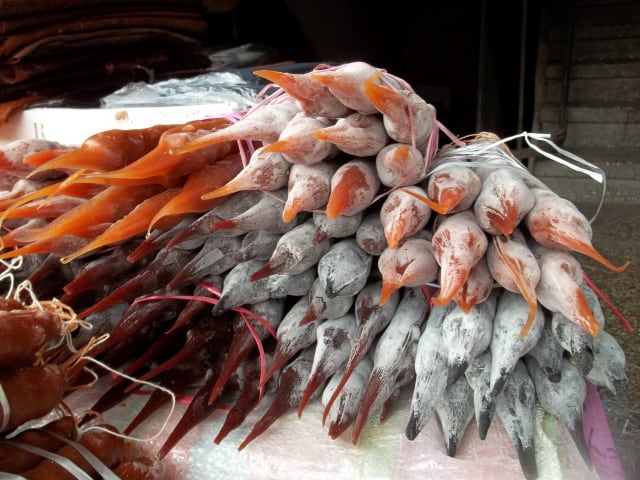Thanks to funding from the European Bank for Reconstruction & Development (EBRD), the EU and Sweden, the company will establish stronger economic ties with the EU and get support to run the business.
High expectations

Inga Kajrishvili, CEO, Badagi, said you can find the traditional sweet almost everywhere in Georgia but the Kakhetian recipe for churchkhela is considered to be the oldest and the most delicious.
The sausage-shaped candy is made by repeatedly dipping a long string of nuts in tatara – a mixture of flour, sugar and Badagi (concentrated fresh grape juice).
It is usually made in the Autumn when the grapes and nuts are harvested. It can also be made with dried fruit (such as peach, apple or plum) and pumpkin seeds.
“In Georgia, churchkhela production is both a great responsibility and challenge – expectations [for] the product’s quality and taste are very high,’’ said Kajrishvili.
Georgia is known for its culinary traditions, especially in respect to each region. For example, khachapuri cheese-filled bread in the west, and wine-making in Kakheti.
Badagi was set up in 2011 when it started selling traditional sweets, with a production facility in the wine-growing region, and now has five stores in the capital and one in Batumi.
“Looking back, we can't believe it started with just one employee. Now over 130 people work for the company. In the early days, we produced 500 churchkhelas a week, now we produce 5,000 a day,” added Kajrishvili.
“But the dramatic growth created problems with the organizational structure and business processes.”
EU4Business initiative
With support from the European Union, under the EU4Business initiative, the Early Transition Countries Fund, the Small Business Impact Fund and Sweden - Women in Business programme, EBRD’s SME Finance and Development group has worked with Georgia for the past 15 years.
Thanks to its support it has helped more than 1,150 advisory projects, half of them outside the capital and around 20% implemented with female entrepreneurs.
For Badagi, involvement in the programme meant stepping up its business operations and learning a better way of doing things.
Plans are now in place to offer various dried fruit products and make Georgian traditional sweets popular with a wider audience in Europe and around the world.
“We work with a range of enterprises to support their efforts of aligning with European standards, and fostering innovation and competitiveness, both on export and local markets,” said Severian Gvinepadze, principal manager, Advice for Small Business, EBRD’s Tbilisi office.
